
Collaborative Endodontic Solutions



Let Us Help
Contact us today to schedule a consultation with our team of specialists.
schedule a consultationWhat is a Root Canal?
It begins with tooth decay
Tooth decay can extend down into the soft tissue layer of your tooth called the pulp causing it to become infected.
What is the pulp?
Under the white enamel and hard layer called dentin, the center of your tooth is what we call pulp. The pulp is a collection of nerves and blood vessels that feed and build the surrounding tooth. When you experience tooth trauma, decay, cracks and chips, or repeated dental procedures, the pulp can become infected.
Followed by pain
An infected pulp will cause pain and can also result in an abscessed tooth when infection and swelling develops in the tissues around or beneath the tooth.
And the need for a root canal
When the pulp becomes infected or the tooth becomes abscessed, it is necessary to perform a root canal to relieve pain and save the tooth.
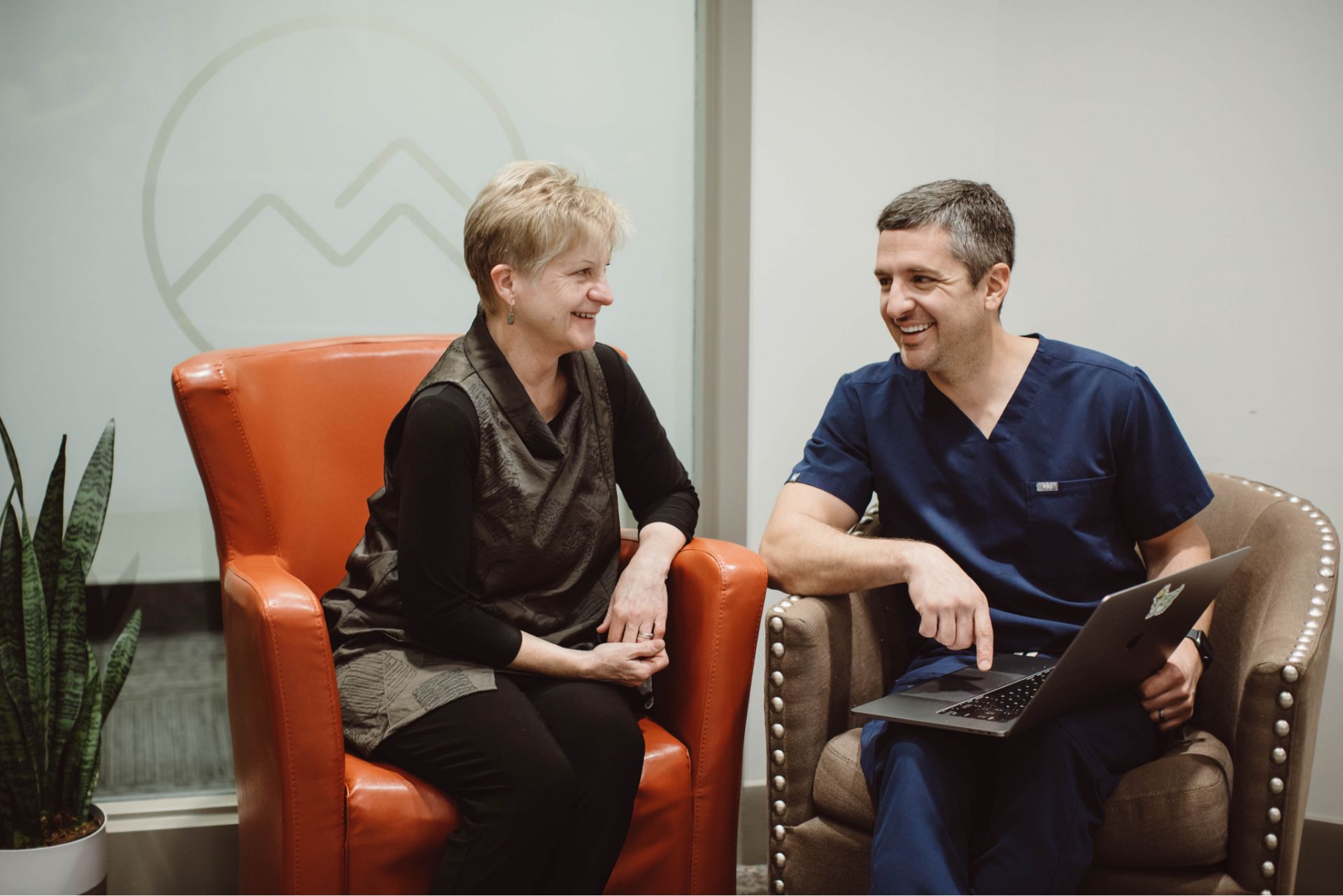

Root Canal Therapy
Designed to remove nerves from the infected pulp of a tooth, root canal therapy eliminates infection and pain while also reducing the chance of future infection. After the root canal therapy is complete, you will need to have a crown or other restoration placed by our Rocky Mountain Dental Specialists team to further protect the tooth and restore its normal function.
Saving Your Natural Teeth
Over 15 million root canals are performed every year to save natural teeth and prevent the need for dental implants or bridges. Saving your natural teeth is always our goal at Rocky Mountain Dental Specialists and is the best option for your optimal oral health.
What is a Root Canal?
If you are experiencing one or more of the following symptoms, you may need a root canal:
- Persistent Pain in tooth, jaw, face, bone
- Tooth discoloration (gray or black)
- Sensitivity to Hot or Cold (sharp pain or dull ache)
- Cracked or Chipped Tooth
- Swelling or Gum Tenderness near painful tooth
- Bump-like pimples near painful tooth
- Tooth movement
What is a Root Canal?
A root canal usually involves local anesthesia and may be completed in just one or two visits depending on the treatment required. The Rocky Mountain Dental Specialists team removes the damaged pulp, thoroughly cleans the root canal system, and seals it with a crown to prevent future bacteria and infection. We use CBCT 3D imaging technology and surgical microscopes for a more accurate, efficient, and comfortable treatment. Because we typically use local anesthesia, most patients can drive home and return to their normal routine immediately after their visit.
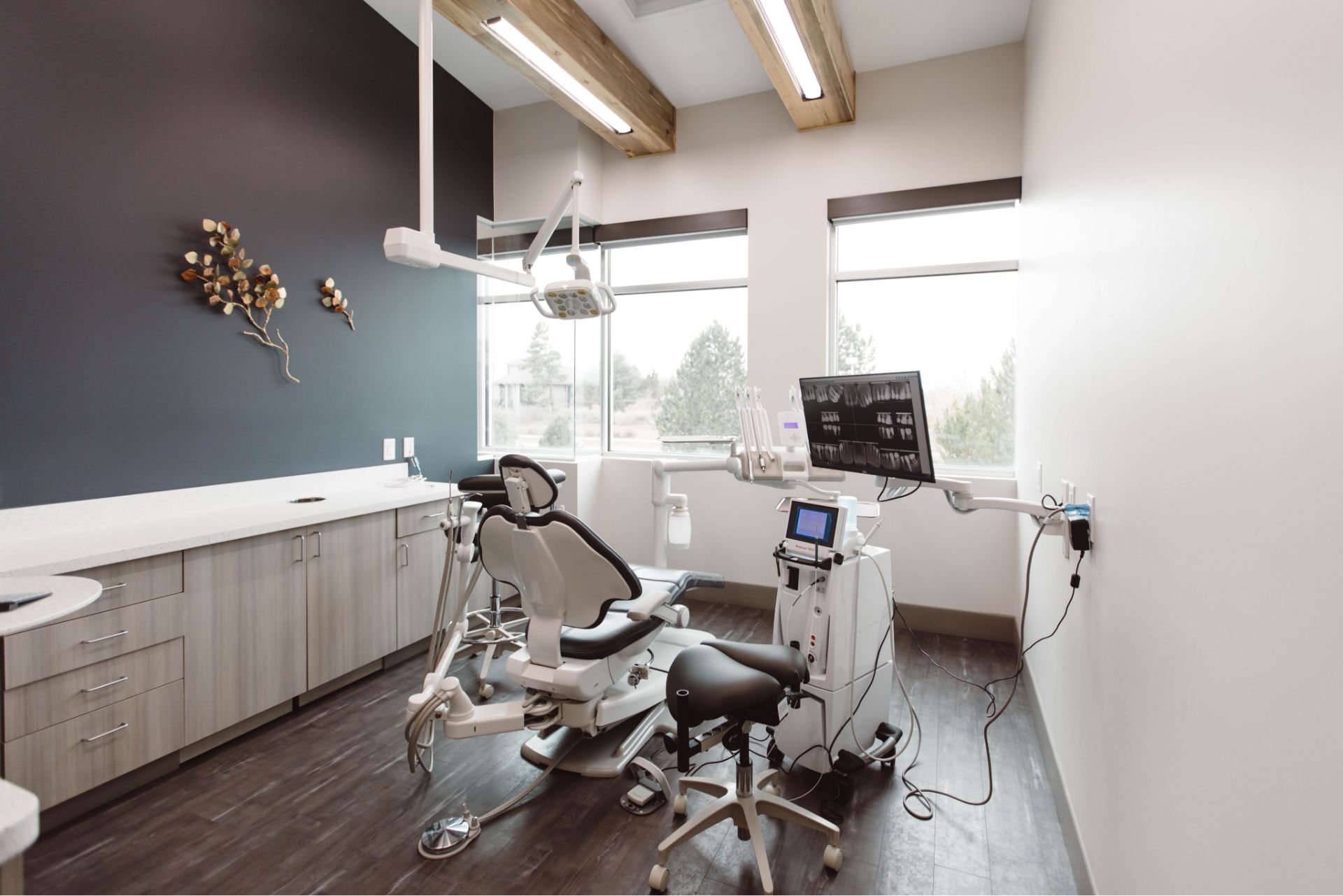
Root Retreatment
Root canal treatment is designed to last for life with proper care. However, sometimes a tooth may not heal properly after treatment. When this happens, pain and infection can return within months, or not for several years after treatment. The return of pain and infection necessitates our Rocky Mountain Dental Specialists team to perform retreatment to save your natural tooth. With CBCT 3D imaging, we can precisely diagnose infection that needs retreatment and manage proximity to critical anatomy like the maxillary sinus and inferior alveolar nerve. During retreatment, we reopen the tooth, remove the original filling, clean, reshape, and refill the root canal. Our specialty is bringing teeth back from the edge of extraction.
Here are a few reasons why the initial treatmentmay not have delivered long-term success:
- Narrow or curved canals were not treated during the initial procedure.
- Complicated canal anatomy went undetected in the first procedure.
- Crown placement or another restorative procedure was delayed following the root canal
- Restoration did not prevent salivary contamination to the inside of the tooth.
Sometimes new issues arise with a tooth that has been previouslytreated. Below are a few common causes for retreatment:
- New decay can expose the root canal filling material to bacteria, causing a new infection in the tooth.
- A loose, cracked, or broken crown or filling can expose the tooth to new infection.
- A tooth sustains a crack or fracture.
Apicoectomy
Why Would I Need An Apicoectomy?
When a root canal won’t save your tooth, we perform an apicoectomy or root-end resection at Rocky Mountain Dental Specialists.
Endodontic microscopic surgery can be used to locate fractures or hidden canals that do not appear on x-rays but still manifest pain in the tooth. Damaged root surfaces or the surrounding bone may also be treated with this procedure.
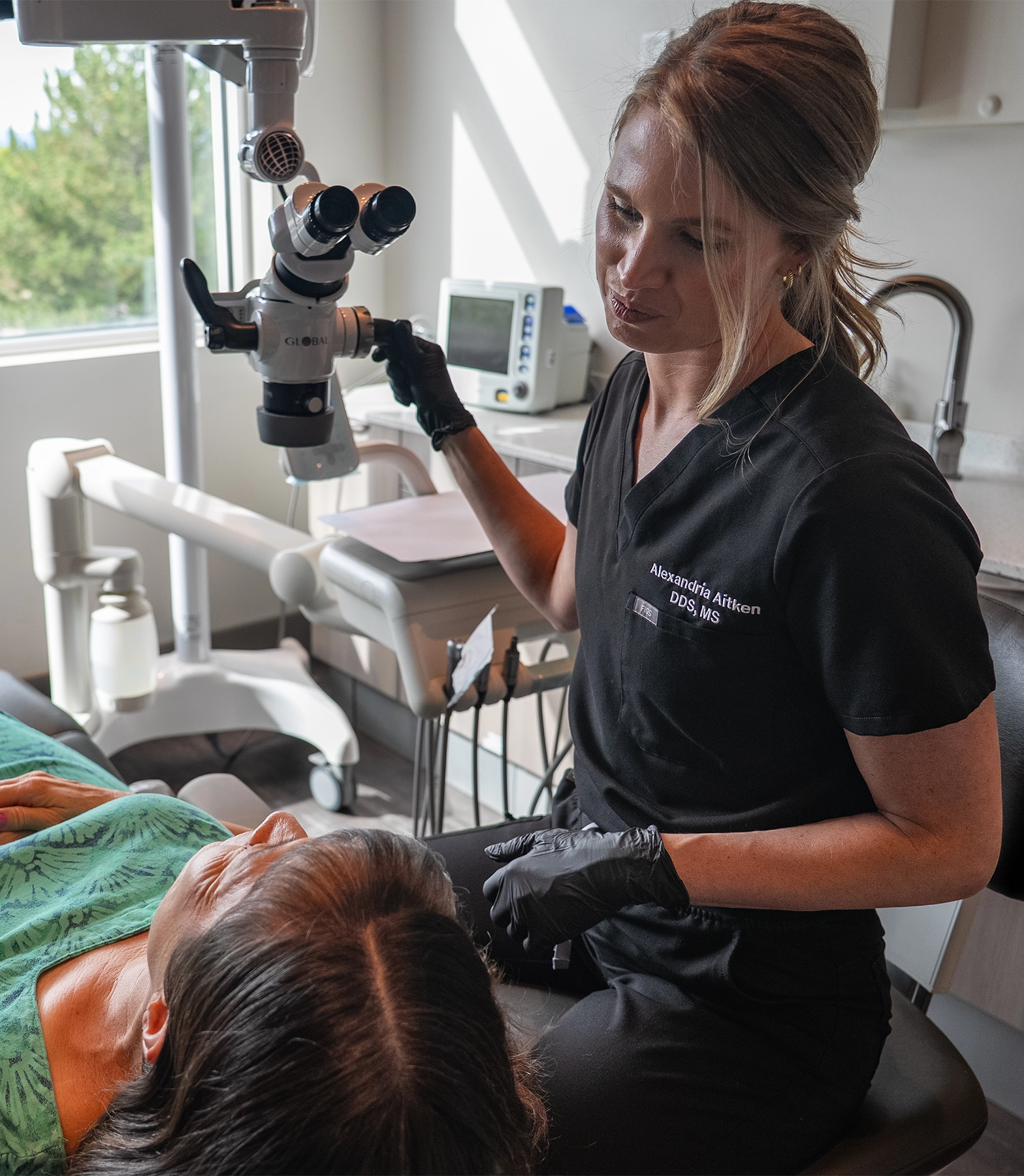
What is an Apicoectomy?
A microscopic surgery designed to save your tooth and restore full function.
Our specialists at Rocky Mountain Dental Specialists make an incision in the gum tissue to expose the bone and surrounding inflamed tissue. The damaged tissue is removed along with the end of the root tip. A root-end filling is placed with bone grafting material to seal the root and prevent reinfection. The bone naturally heals around the root over a period of months restoring full function.
What Should I Except After an Apicoectomy?
You can expect some discomfort or slight swelling during healing.
This is normal for any surgical procedure. To alleviate any discomfort, an appropriate pain medication will be recommended. If you have pain that does not respond to medication, please call our office.
Cracked Teeth
Cracked teeth can lead to pain, sensitivity, and potentially long-term damage. Early diagnosis is critical to preventing further deterioration.
Diagnosing and Treatment
At Rocky Mountain Dental Specialists, we use advanced CBCT 3D imaging and surgical microscopes to accurately identify the location and extent of the cracks. We create an efficient, personalized treatment plan based on the severity and location of the crack. In many cases, we recommend root canal therapy to prevent more damage, eliminate pain, and restore the tooth’s function.

Intentional Reimplantation
If you have a tooth that is suffering from chronic infection, has previously had a root canal, but its location prevents a regular apicoectomy, your tooth can still be saved. Intentional reimplantation allows us to save teeth on the brink of extraction.
What is intentional reimplantation?
This specialized procedure carefully extracts the tooth from the socket, performs an apicoectomy removing the infected root tip and sealing it, and then reimplants the tooth into the original socket. It allows the tooth to heal and regain full function.
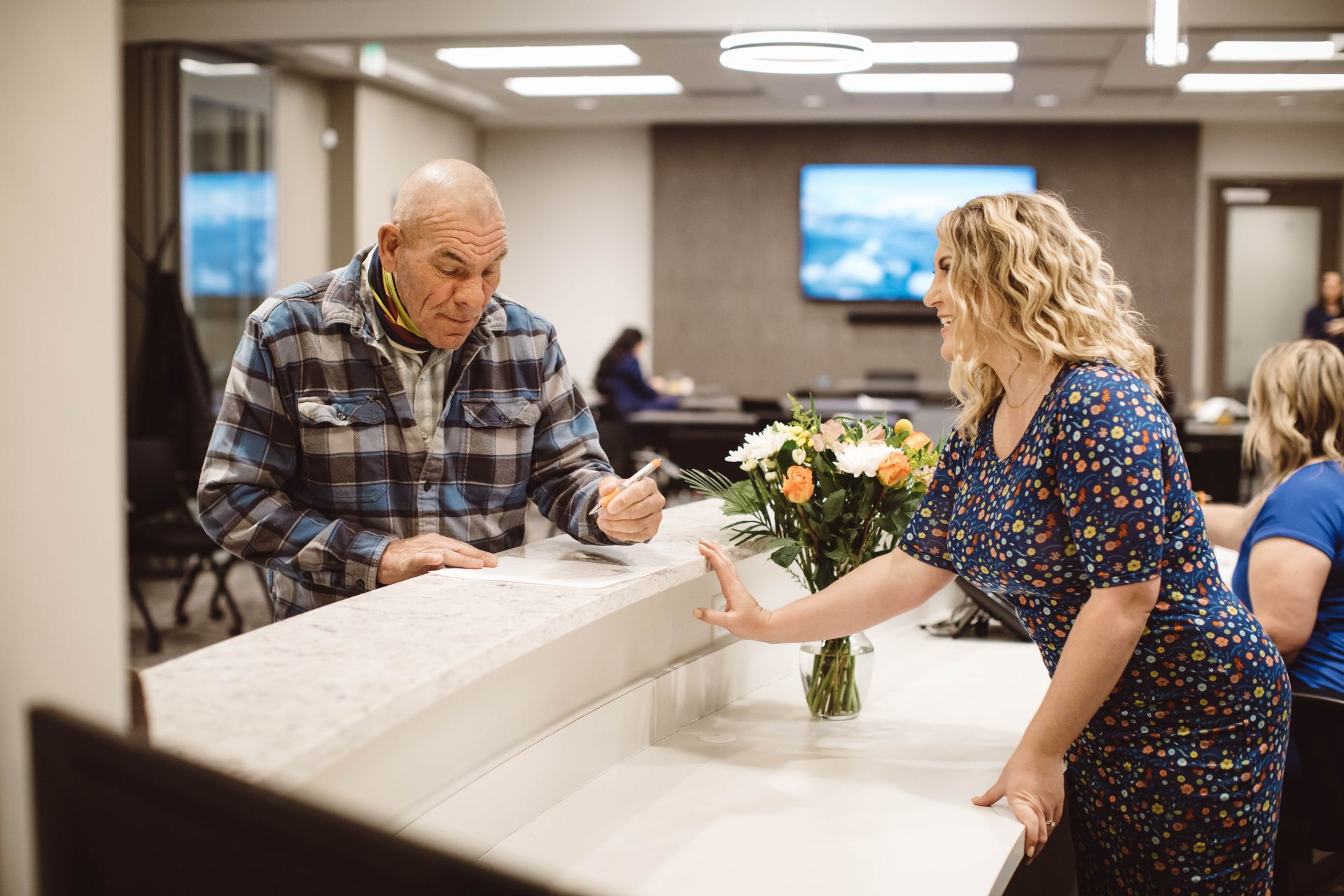
What should I expect after the procedure?
Mild discomfort and swelling is normal as the tooth heals and can be managed with medication. If the pain persists or worsens, please contact our office.
Internal Bleaching
During a root canal treatment, this procedure is performed to whiten a discolored tooth from the inside. This technique internally restores a tooth’s natural color and often eliminates the need for a crown or veneer. After treatment, your natural tooth will blend seamlessly with the rest of your smile.
Do I need internal bleaching?
If your tooth has experienced trauma, it can darken from the inside out when iron pigments get trapped in the dying or dead pulp. Traditional external bleaching methods can’t treat this type of discoloration.
External Resorption Repair
External cervical resorption (ECR) occurs when the body mistakenly breaks down a tooth’s structure from the outside near the gumline. It’s similar to how rust silently eats away metal, but it’s the hard surface of your tooth. It’s often asymptomatic and is discovered accidentally during routine dental x-rays. If left untreated, it can destroy the tooth and lead to pain or a needed extraction.
What causes ECR?
The cause of ECR isn’t fully understood, but the following triggers can cause the body to attack the tooth.
- Orthodontic treatment (braces)
- Tooth trauma
- Surgical procedures
- Pressure on the root
- Chronic inflammation
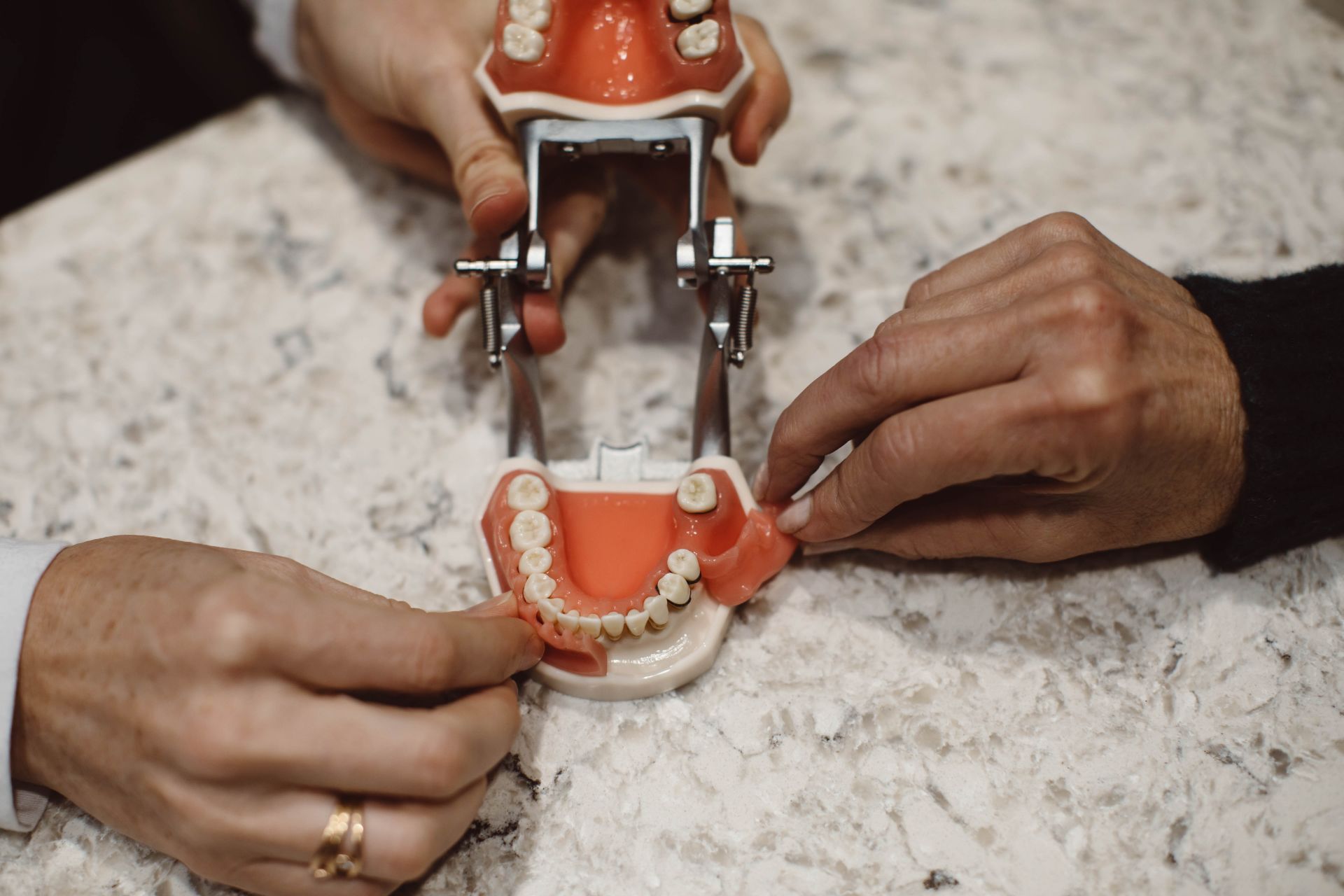
How is it treated?
Treatment depends on the extent of resorption.
- Minor – can be cleaned and repaired with specialized materials.
- Moderate – may require surgical cleaning and restoration in addition to root canal treatment.
- Severe – may require tooth extraction.
connect with us
New Patient? Contact us today to set up an appointment.
Referring Doctor? We'd love to help you serve your patients.
Referral Information

